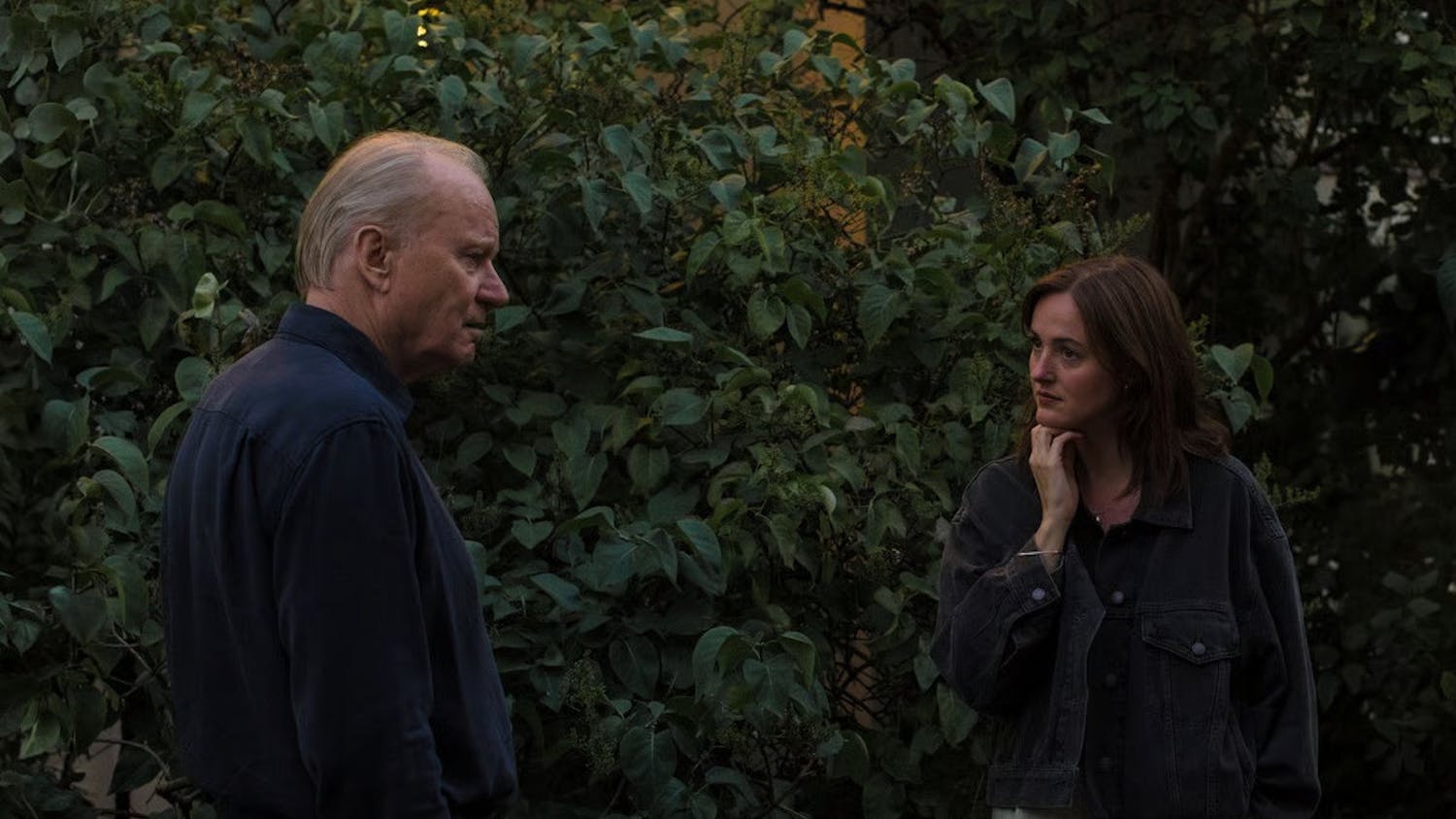From the Newsstands: This story appeared in The Eagle's November 2022 print edition. You can find the digital version here.
Leila Hernandez gave birth to her daughter in May 2021, but she can only afford to put her daughter in daycare because of her partner’s job. Working in the American University Career Center as a cus-tomer service specialist, Hernandez says she is not able to be the primary earner for her family.
Hernandez protested for better compensation and working conditions back in August as a member of the AU staff union. The staff union is one of four unions at the University, along with the graduate student union, adjunct faculty union and WAMU union.
“You have to be in a position of privilege to be able to afford to work at AU,” Hernandez said. Hernandez attended AU for graduate school and chose to work as a staff member at AU to give students the same experience she had.
Aubrey Hill, who is also an AU alumna, now serves as a systems administrator in the Career Center and was part of the formation of the AU graduate student union during her time at AU.
Hill says it is very common that students go on to work for the University, going from “really low student wages to still really low wages.”
“Having student loans after having been a student at American University, and trying to then live on an American University salary was very, very difficult and continues to be difficult,” Hill said.
Kylie Stigler, an academic advisor in the School of Communication, is also part of the AU staff union. Stigler started working for AU in January and said she has a passion for helping people, especially students, realize what they want to do.
“It’s hard advocating for yourself and advocating for more money and better health care coverage and everything that we did fight for when you have people that don't want to budge on anything,” Stigler said.
In August, after months of negotiations with AU, the staff union went on strike during All-American Welcome. Over the course of five days, the strikes delayed the move-in process, and freshmen walked out of convocation in support of the staff union.
Hernandez said seeing the support of freshman students made her want to continue working at AU.
“Seeing the love and support of AU students makes me giddy,” Hernandez said. The strike ended when the staff union and the University agreed on a contract, which was then ratified by the union. Before the contract was signed, Hill said AU was telling staff union members that the contract would go into effect Oct. 1.
“We are proceeding under the assumption that it is enforceable right now that people can start to bring grievances if they need, that people will be seeing those pay raises,” Hill said before the contract was signed.
Vice President and Chief Communications Officer Matt Bennett said in an email to The Eagle that the University is working to upload compensation increases into the payroll system. Updated pay for bi-weekly paychecks was rolled out on Oct. 28, and monthly paychecks on Oct. 31.
Additionally, Bennett said AU is establishing a Labor-Management Committee and working with SEIU-Local 500 to develop the processes for collecting union dues and agency fees.
“Implementation of the CBAs is underway and teams across the university are updating procedures and systems,” Bennett told The Eagle in an email.
Now, all four unions at American University have their contracts signed: provost and enrollment division staff, graduate students, adjunct faculty and WAMU content staff.
David Jacobs — a member of AU’s adjunct union — said the student walkout during the freshman convocation “had an effect” and the union came to an agreement before classes started on Aug. 29, 2022.
For many staff members, adjuncts and graduates, the unions helped address the issues they had with working for the University.
However, many still have grievances with the administration and the way they address the issues that union members face.
James Bryan is a member of AU’s graduate student union and a current P.h.D. candidate in the School of International Service. He said he enjoyed working at AU but found his salary insufficient.
In a separate email, Bryan wrote, “It [the Consumer Price Index] was 252.2 when I started in Sept. 2018 and was 296.8 in Sept. 2022.” Bryan added that the Consumer Price Index represented a 17.7 per- cent increase in prices and that prices are continuing to rise.
Bryan has taught six sections of Introduction to International Studies and said his salary was inadequate for the cost of living in D.C. He described a “dual reality” of greatly enjoying the work and program at AU but realizing that he and other P.h.D. students weren’t being paid a livable wage.
Bryan thought P.h.D. students weren’t compensated for the work they are doing in addition to research for their degrees.
Similar to Bryan, Jacobs felt frustrated with how the administration handled the union process.
Jacobs is an adjunct professor of management in the Kogod School of Business. He said the admin- istration ignored the adjunct union for four months and that they were “stonewalled” for an extended period of time.
In an email, Jacobs wrote that Lou Cannon was on the council but didn’t make the policy.
“We were pointing out that the rate of the inflation had risen substantially and that departments were having difficulty seeing their course stat because of turnover,” he said.
Jacobs said he has been at AU long enough to see significant changes in the school’s day-to-day operations. Jacobs started as an adjunct in 1981 and was a full-time faculty member from 1986-2002. He’s been an adjunct since 2020.
“And it’s been since the 1980s, in particular, that universities have begun to rely so extensively on adjuncts and have possibly undervalued their labor more generally,” Jacobs said.
A 2016 study published by the TIAA Institute found that from 1993-2013, there was a 114.5 percent increase in part-time faculty at uni- versities. And because universities currently depend so much on adjunct faculty, Jacobs wants to see the universities they work for — particularly American University — value their work.
“I would like AU to invest as much in its employees, as it has done recently, in landscape development,” Jacobs said.
He added that the University considered “how students, as consumers, would relate to the quality of the landscaping and the buildings themselves.”
Jacobs said the University needs to continue and consider its investments in terms of increasing salaries for its adjunct professors. He also emphasized that the University’s human resources practices not only affect professors and staff but also the students and the larger AU community.
Jacobs said, “I’m hoping that we have good faith bargaining continuing and that we can all have conversations with the administration about how there are opportunities for us all to mutually benefit ...”
Like Jacobs, Bryan hopes to build on the progress made by last year’s negotiations. Bryan also wants the union to leave a lasting impression and organize more efficiently and earlier.
“So, I’m hoping we can sort of build off the momentum from the last year and stay engaged with each other, even though we won't be negotiating another contract for three years,” he said.
Looking forward, Hill hopes to support the AU staff union by establishing an internal governance structure while also encouraging other campus workers to unionize. The union elected 15 representatives that will help other members understand the new contract.
“If we can prove that it's worth it, then that will help clear away the fears and concerns that have held people back in the past from organizing,” Hill said.
Stigler also hopes the union will grow and continue to successfully advocate for its workers. She said the student support she received during the work stoppage reaffirmed why they were striking and what they were doing.
“It’s nice to know that no matter what happens, our students do support us just as much as I want to support them,” Stigler said.





